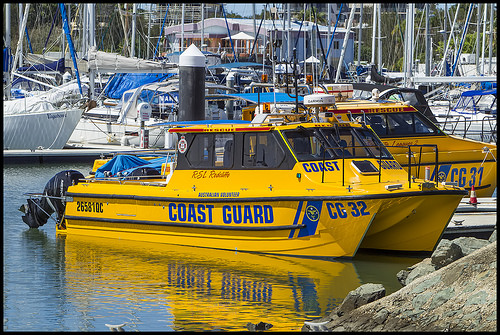Basics of Maritime Law

What is maritime law?
Maritime law, also referred to as admiralty law, is a highly-specialized field of law that pertains to a variety of sea-related matters. It comprises standards, regulations, protocols, actions, and civil procedures unique to this area of the law.
Maritime laws regulate commerce, maritime workers, shipping, navigation, piracy, and recreational boating on domestic and international navigable waters. United States maritime law is broad in scope, covering businesses, individuals, and contracts related to maritime activities on both natural and man-made waters.
How is maritime law applicable to the average person?
Maritime law most often comes into play for maritime businesses, recreational boaters, passengers aboard vessels, and maritime workers:
Maritime businesses: Businesses involving maritime activities must abide by numerous state, federal, and maritime regulations, and are subject to sanctions when they violate the rules.
Recreational boaters: When people are injured in recreational boating or watercraft accidents, their cases (tort claims) are subject to certain maritime laws, US Coast Guard laws, and supplemental state laws.
Cruise ship passengers: When passengers aboard vessels such as cruise ships sustain an injury, their negligence claims are subject to maritime laws that impose stringent time limits and filing procedures on the victim.
Maritime employees: Our maritime injury attorneys at Lee Hoffoss Injury Lawyers primarily work with injured workers in maritime-related professions. Maritime laws provide protections for workers who sustain injuries while on the job, and we help these workers exercise their rights within these laws. These valuable protections are akin to workers’ compensation and liability claims for land-based workers. Our work involves helping injured seamen, longshoremen, and other maritime employees pursue recovery for their harms within the realm of maritime law.
What types of remedies do injured maritime workers have?
Maritime workers (and their families in fatal cases) have certain remedies they can use under maritime law when they are hurt on the job. Below are examples of recoveries they may have access to, depending on the nature of their job and of their injuries:
- Unseaworthiness claims: Under the doctrine of unseaworthiness, injured workers can hold the vessel owners liable for harm when the ship or its components, which must have been deemed unseaworthy (i.e., unfit for intended use), caused the injuries. Unseaworthiness can include things like broken or outdated parts, unsafe work spaces, and untrained crew members.
- Maintenance and cure: Maintenance and cure is essentially the equivalent of workers’ compensation benefits for maritime workers. This remedy provides that maritime employers must pay for a seaman’s medical care and basic living expenses when he is injured on the vessel, irrespective of fault.
- Jones Act claims: Also called the Merchant Marine Act, the Jones Act gives seamen the right to pursue a claim against their employer when their injuries were caused by employer negligence.
- LHWCA claims: The above remedies are only available for those considered “seamen” under the law. Maritime workers who are not seamen, e.g., dock and harbor workers, under the law can instead file a Longshore and Harbor Workers’ Compensation Act (LHWCA) claim for recovery.
- Death on the High Seas Act claims: When a seaman dies from a maritime injury, his family members can file a Death on the High Seas Act claim for compensation for their losses.
Does maritime law apply to my case?
Determining the jurisdiction of a case can be tricky. It is not always as straightforward as it seems. The parties involved do not get to decide whether the case falls under maritime law. The courts do. The courts start with a two-part test when deciding jurisdiction:
- Location test: The first factor they consider is whether the incident took place on the “navigable waters” of the U.S., defined as bodies of water that are capable of use for interstate or foreign commerce. Lakes, waterways, rivers, harbors, oceans, and canals qualify, whereas bodies of water only used for intrastate commerce do not.
- Connection test: The next factor they consider is whether the incident or issue has a nexus with traditional maritime activities. To fall under maritime law jurisdiction, the incident must have “a potentially disruptive impact on maritime commerce” and the “general character of the activity giving rise to the incident shows a substantial relationship to traditional maritime activity,” the Supreme Court provided in Jerome B. Grubart, Inc. v. Great Lakes Dredge & Dock Co.
Get a FREE consult with a maritime lawyer at Lee Hoffoss Injury Lawyers.
If you or a loved one was injured in maritime accident, you may be entitled to compensation. In some instances, you have more than one remedy. To determine eligibility or for questions about legal representation, call Lee Hoffoss Injury Lawyers and schedule a free consult with one of our maritime injury lawyers.
Our firm handles all types of maritime cases including, Jones Act, unseaworthiness, and LHWCA claims. We can explain your rights and responsibilities and help you pursue the restitution you deserve. Contact us today at 337-433-2053 to get started.
Photo Credit: Sheba_Also 11.8 Millon Views Flickr via Compfight cc


